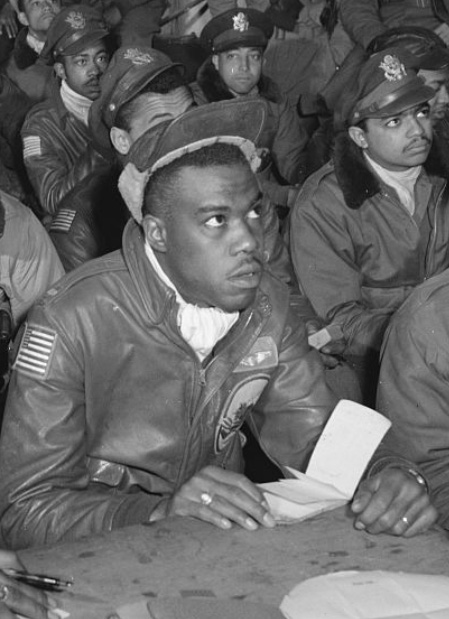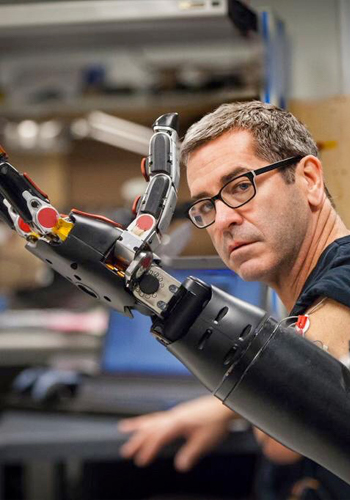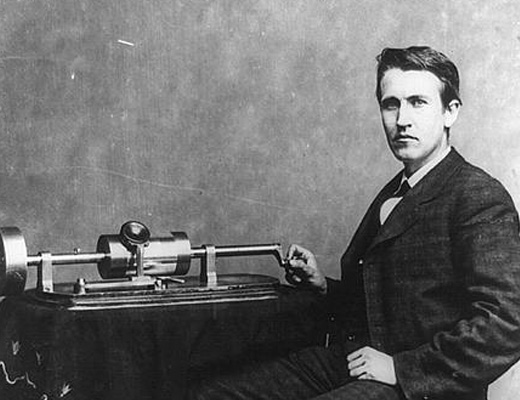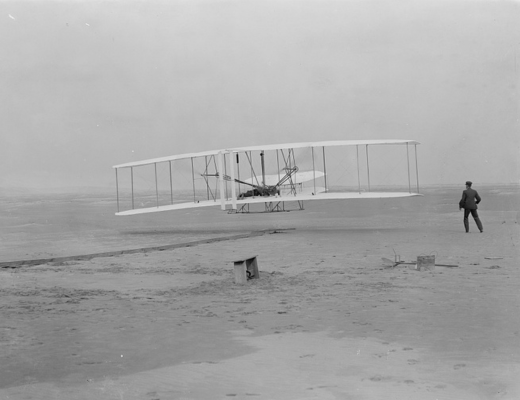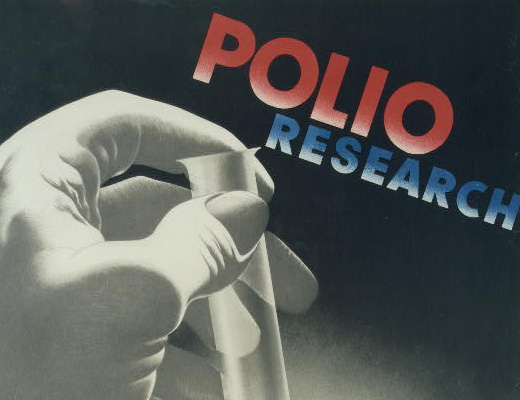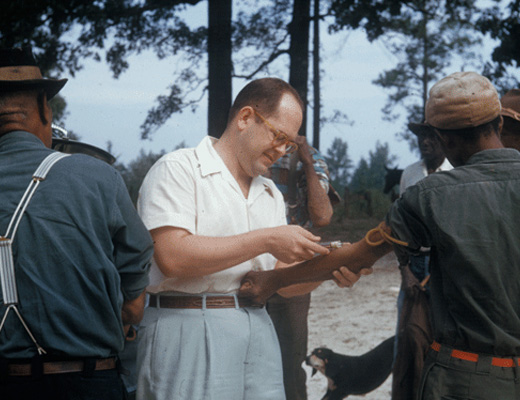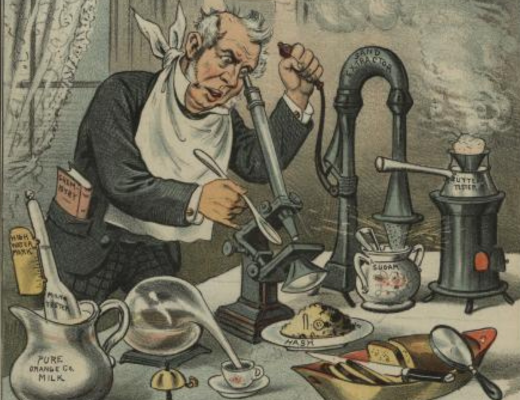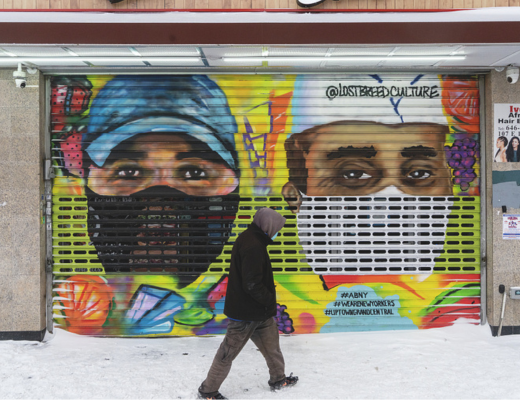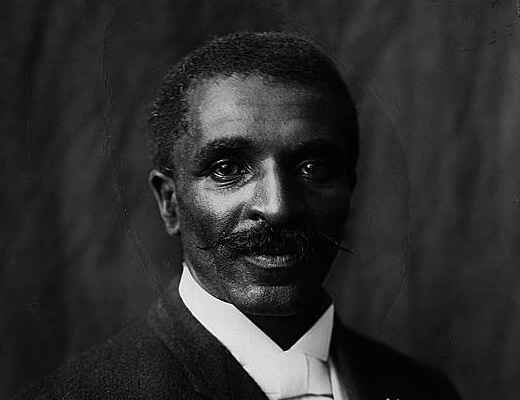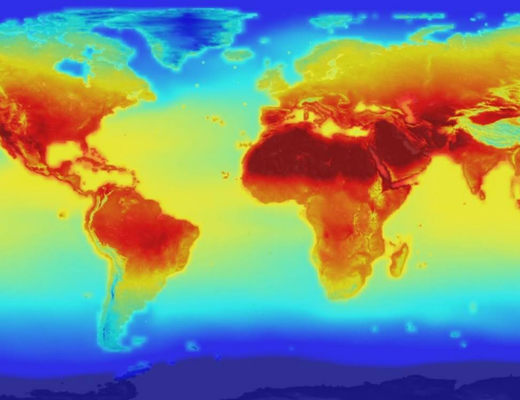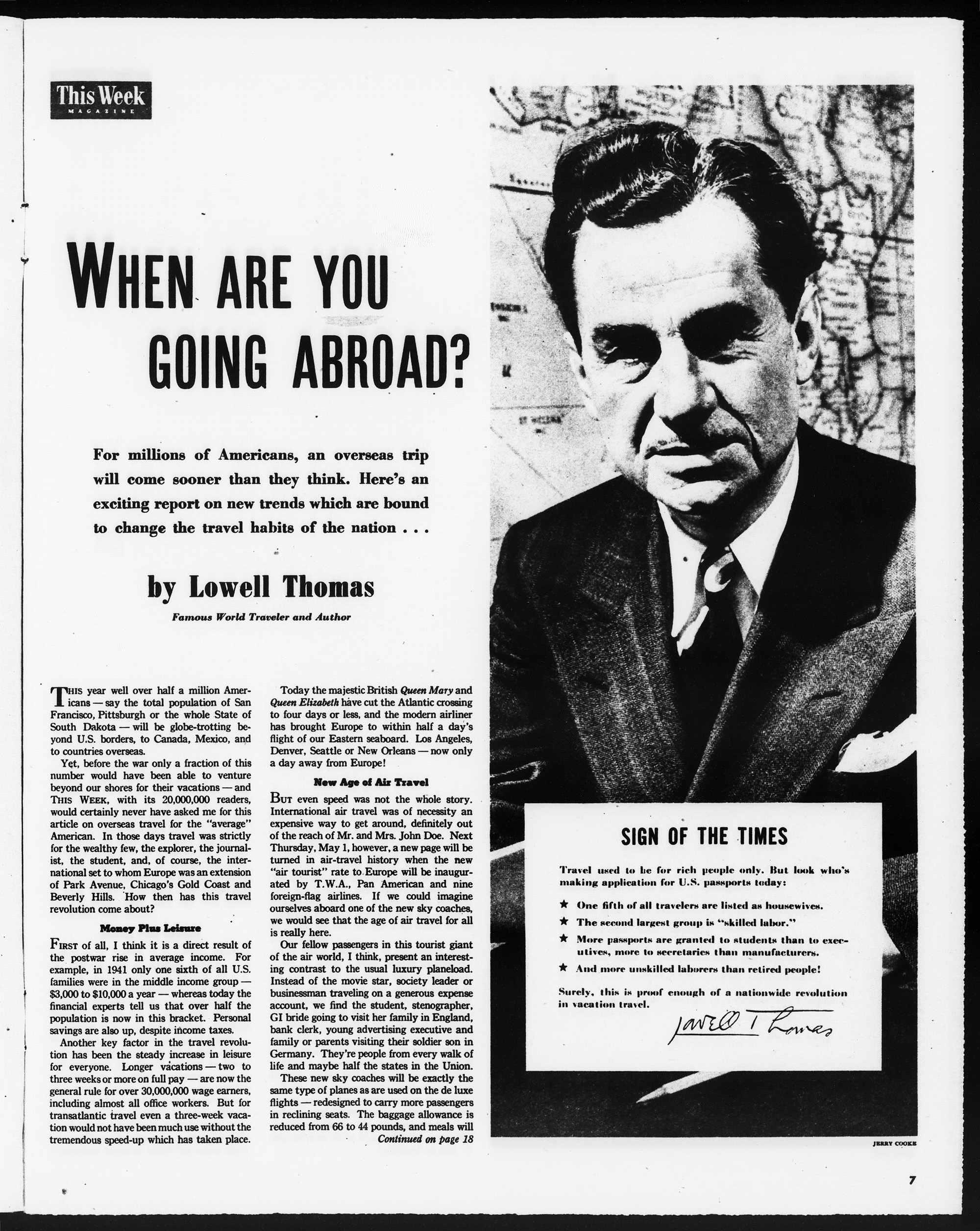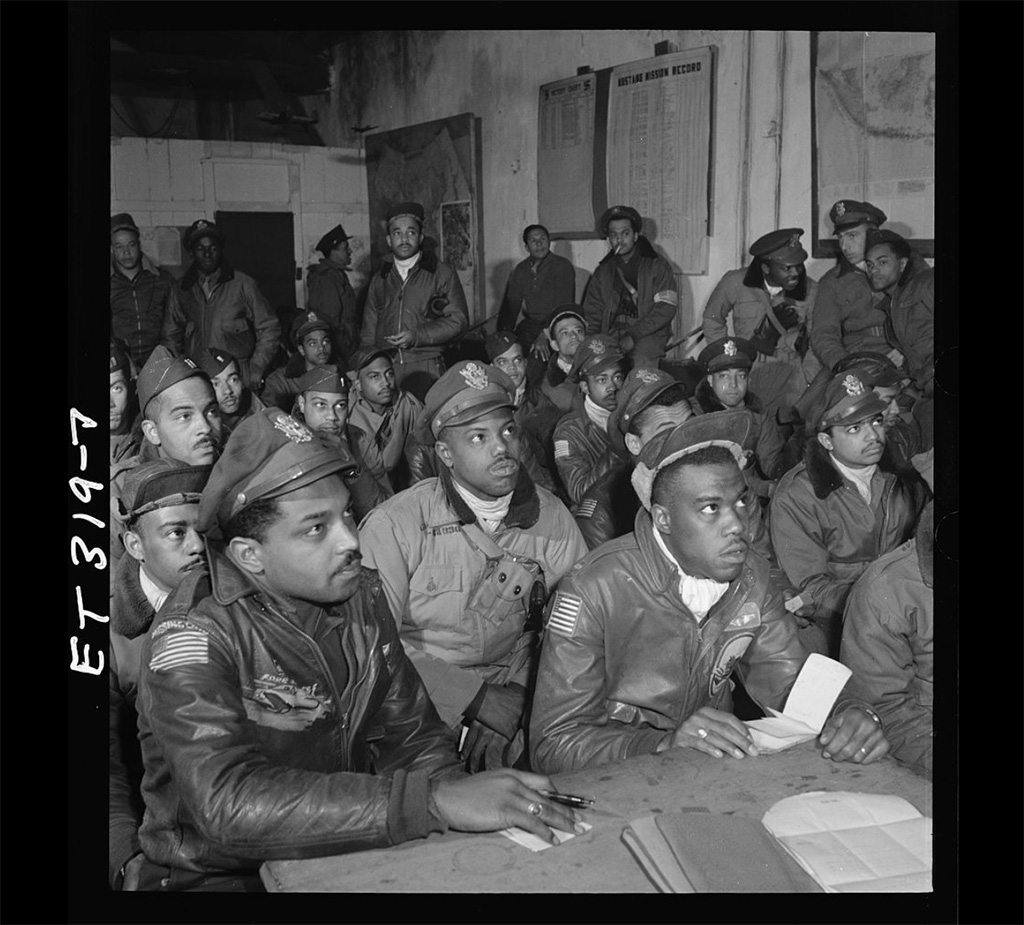From ancient Chinese kites, to Leonardo Da Vinci’s plans for an aircraft, to 18th-century hot air balloons, humans have long dreamed of taking to the skies. It wasn’t until the 20th century, though, that dream was fully made into a reality. That remarkable century began with the Wright brothers’ far-fetched dreams of a motor-operated plane and ended with human footprints on the moon and a web of commercial airlines connecting every part of the globe.
Directions
The motorized airplanes pioneered by the Wright family proliferated across the world during the first half of the twentieth century, bolstered by the mass production of warplanes for the first and second world wars.
In the column below, published in 1952, a journalist observes that many more ordinary Americans are taking to the skies on commercial flights and speculates as to why this might be. Use the Magnifier tool to read the first six paragraphs of the clipping before responding to the three questions below.
Washington Evening Star. Washington, DC. April 27, 1952. Library of Congress
Questions
Annotate this Image
The name perhaps most associated with the history of aviation is Wright. The Wright brothers, from Dayton, Ohio, pioneered the first ever motorized airplane, first achieving lift off on December 17th, 1903 in Kitty Hawk, North Carolina. Though the acclaim largely went to the two brothers, their younger sister Katharine played a crucial role in their innovation. She managed the family's affairs as they worked on the aircraft and when, following their success, the family spent a large amount of time in France, she learned French and became the face of the family in French society and Europe more generally. Orville Wright made clear that “when the world speaks of the Wrights, it must include our sister. Much of our effort has been inspired by her.”
Directions:
Examine the following headline and image from the May 15, 1909 front page of the Los Angeles Herald, showcasing the medal that the Wright siblings, Katharine included, received from the elite French Aero Club
While you read, use the annotator tool to answer the following questions:
- Mark two locations in the image where Katharine and her brothers are treated differently.
- Use the annotator to answer the question below the image: Why is it especially strange that Katharine is presented differently than her brothers, considering the fact that she won the same award as them?
- Use the annotator to indicate how you would change the design or text to make this image more fair to Katharine.
Source: "Two Wright Brothers, Their Sister, King of Spain and the Medal Given by the Aero Club,” May 15, 1909, Los Angeles Herald. Library of Congress
Use the toggle button above to switch to Magnify Mode. Magnify mode will help you see finer detail in the image.
Switch back to Annotate Mode to create your annotations with click and drag.
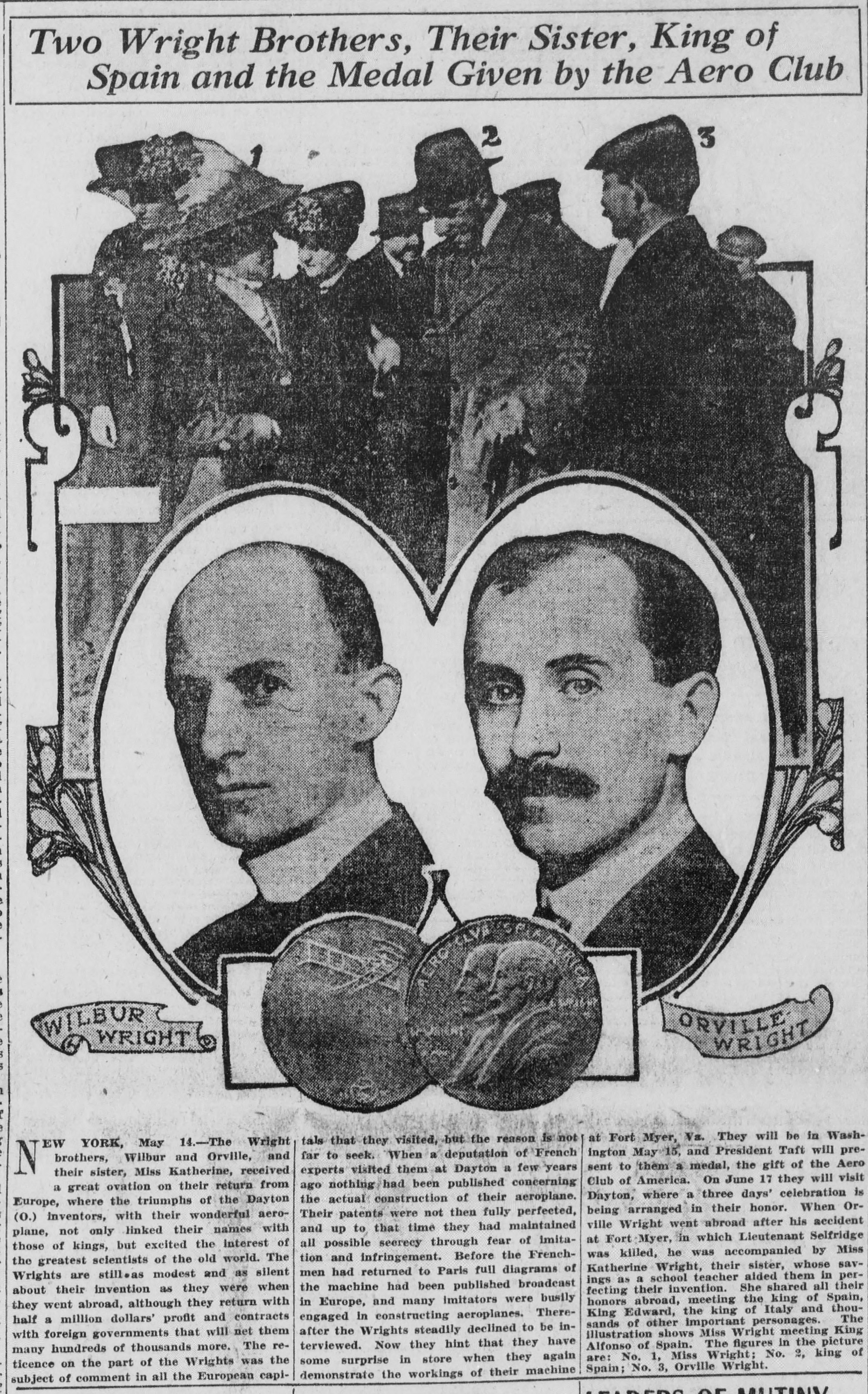
Your Annotations
Puzzler
Directions: Take a look at the different sections of the image one by one and answer the question that accompanies each section. At the end, you will see the completed image.
Source: Library of Congress
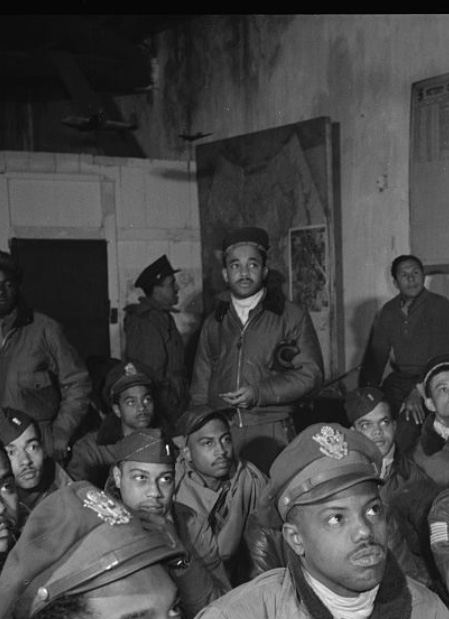
Cropped Image 1
Why do you think that all the pilots in the photo are Black?
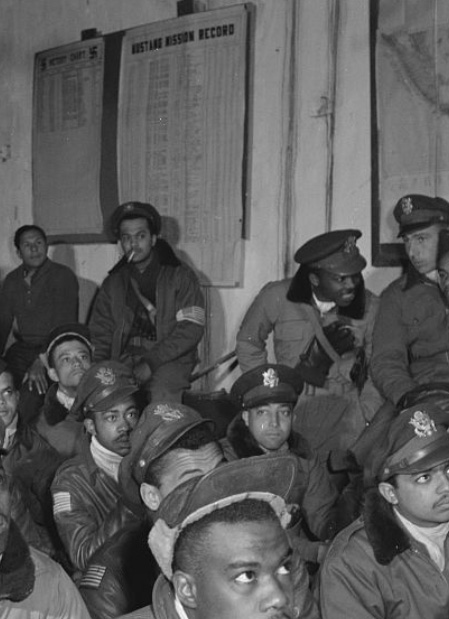
Cropped Image 2
What do you think the men are looking at? How would you describe their expressions?
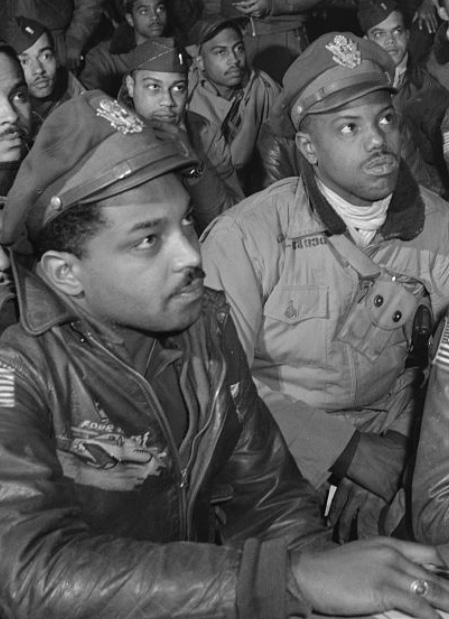
Cropped Image 3
Why might this section of the image have been striking to many people living in America at this time?
